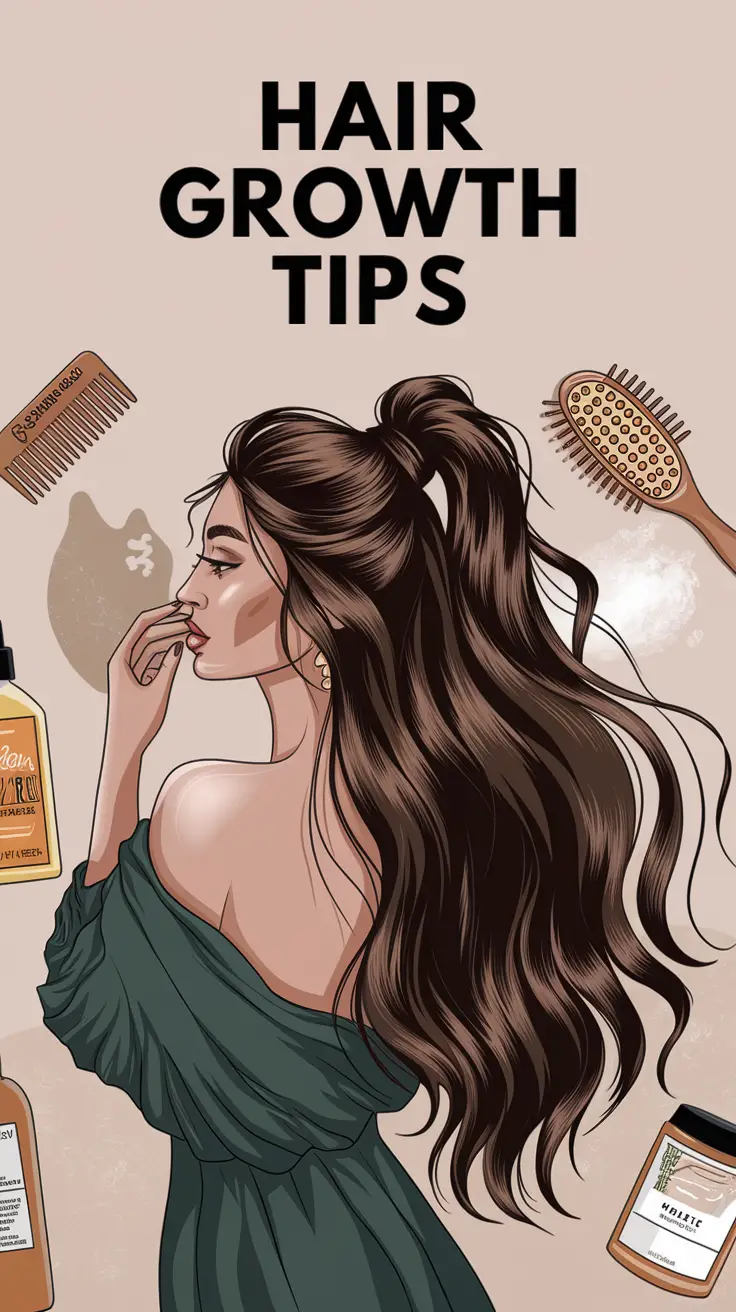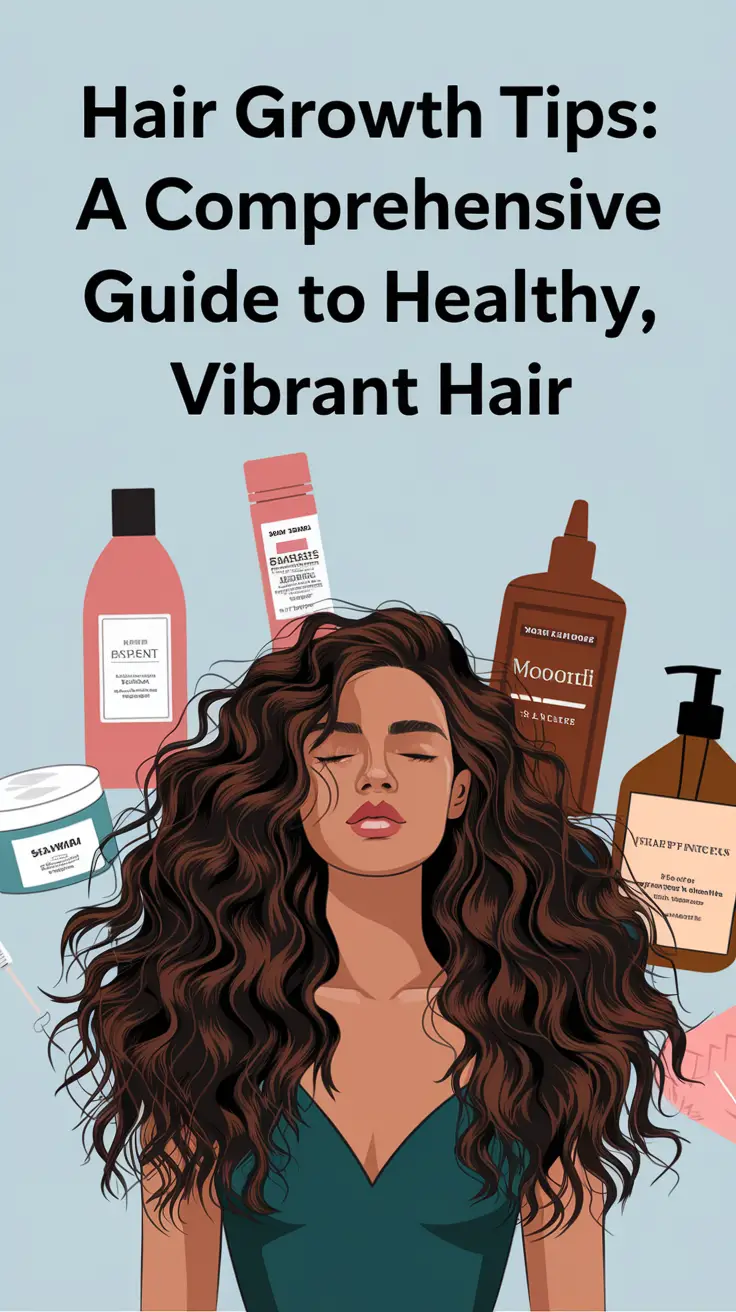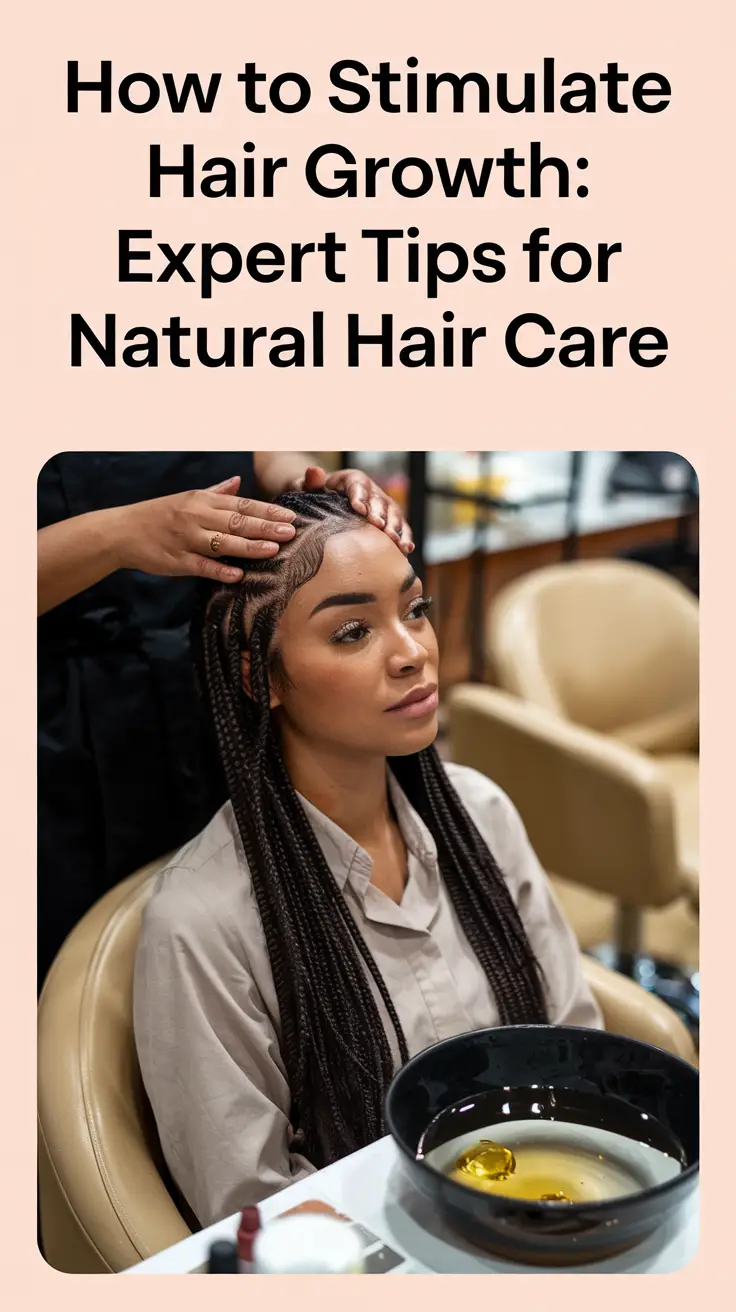Hair Growth Tips: A Comprehensive Guide to Healthy, Vibrant Hair
Achieving luscious, healthy hair isn’t just about genetics – it’s a combination of the right care, lifestyle choices, and a touch of patience. As someone who’s navigated the ups and downs of hair health, I’ve gathered actionable insights to help you foster optimal hair growth. This guide is designed to give you all the tools you need, including scientific explanations, DIY tips, and lifestyle adjustments.
Understanding the Science of Hair Growth
Hair grows approximately half an inch per month, totaling about six inches per year. This growth occurs in cycles:
- Anagen Phase: Active growth phase, lasting 2-7 years.
- Catagen Phase: Transitional phase, lasting about 10 days.
- Telogen Phase: Resting phase, lasting around 3 months.
- Exogen Phase: Shedding phase, where old hairs are replaced.
Factors influencing these cycles include:
- Genetics: Determines growth rate and hair density.
- Hormones: Androgens like DHT can shrink hair follicles, causing thinning.
- Health and Nutrition: Proper nutrients are vital for strong, healthy hair.

Top Tips for Boosting Hair Growth
1. Nourish Your Hair from Within
Your hair reflects your overall health. To support growth, prioritize nutrient-rich foods:
| Nutrient | Benefits | Food Sources |
|---|---|---|
| Biotin | Strengthens hair shafts | Eggs, nuts, seeds |
| Vitamin E | Protects hair from damage | Spinach, almonds, sunflower seeds |
| Zinc | Promotes follicle health | Oysters, beef, pumpkin seeds |
| Iron | Delivers oxygen to follicles | Red meat, lentils, spinach |
| Omega-3 Fatty Acids | Moisturizes scalp | Salmon, walnuts, flaxseeds |

2. Pamper Your Scalp
The scalp is the foundation of hair health. Stimulate it with these techniques:
- Scalp Massages: Spend 5-10 minutes daily massaging your scalp with your fingertips to boost blood flow.
- Essential Oils: Rosemary, peppermint, and tea tree oils can promote follicle stimulation. Always dilute with a carrier oil like coconut or jojoba oil before application.
- Exfoliation: Use gentle scrubs or clarifying shampoos once a month to remove buildup.
| Technique | Benefit | Frequency |
| Scalp Massage | Improves blood circulation | Daily |
| Essential Oils | Stimulates hair growth and soothes scalp | 2-3 times per week |
| Scalp Exfoliation | Removes product buildup | Once a month |
3. Avoid Damaging Practices
Protect your hair by:
- Limiting Heat Styling: Use tools on low heat and always apply a heat protectant.
- Opting for Loose Hairstyles: Tight buns or ponytails can lead to traction alopecia.
- Minimizing Chemical Treatments: Excessive bleaching or relaxing weakens hair shafts.
4. Try Natural Remedies

Home remedies can complement your hair care routine:
- Aloe Vera: Hydrates the scalp and soothes irritation.
- Onion Juice: Rich in sulfur, it can stimulate hair follicles (apply for 30 minutes, then rinse).
- Green Tea Rinse: Antioxidants in green tea may boost hair growth.
5. Maintain a Healthy Lifestyle
Your overall well-being plays a key role in hair health:
- Stress Management: High stress can lead to telogen effluvium, causing temporary hair loss. Practice yoga, meditation, or regular exercise.
- Adequate Sleep: Hair regenerates during sleep, so aim for 7-8 hours nightly.
- Stay Hydrated: Water keeps your scalp hydrated, promoting a healthy growth environment.
| Lifestyle Tip | Impact on Hair Growth |
| Stress Management | Prevents stress-induced hair loss |
| Adequate Sleep | Supports hair regeneration |
| Hydration | Maintains scalp and hair health |

6. Use the Right Products
Invest in products tailored to your hair type:
- Look for shampoos free from sulfates, parabens, and silicones.
- Consider products containing keratin, niacin, or caffeine.
- Incorporate a weekly deep-conditioning treatment.
7. Explore Advanced Treatments
For persistent hair loss, consult a dermatologist or trichologist. They may recommend:
- Minoxidil: An over-the-counter topical solution proven to stimulate growth.
- Finasteride: A prescription medication for reducing hair loss.
- PRP Therapy: Platelet-rich plasma injections can rejuvenate dormant follicles.
- Laser Therapy: Low-level laser devices improve scalp blood flow.
Seasonal Adjustments

Adapt your hair care routine to seasonal changes:
- Winter: Use hydrating masks to combat dryness.
- Summer: Protect hair from UV damage with hats or SPF sprays.
When to See a Doctor
If you experience sudden, patchy hair loss, or symptoms like scalp redness, itching, or pain, seek professional advice. These could indicate underlying conditions like alopecia areata or scalp infections.
Conclusion
Promoting hair growth requires a multifaceted approach, from nourishing your body and scalp to avoiding harmful practices. Consistency is key, and while results take time, these tips will help you achieve healthier, stronger hair. If your hair concerns persist, don’t hesitate to consult a professional.
Frequently Asked Questions (FAQs)
- How long does it take to see noticeable hair growth?
Typically, you can expect visible results within 3-6 months of consistent care. - Can supplements aid in hair growth?
Yes, supplements like biotin, vitamin D, and zinc can support hair health, but consult a doctor before starting. - Does frequent trimming promote faster growth?
Trimming doesn’t speed up growth but prevents split ends, making hair look healthier. - What’s the best way to prevent hair breakage?
Use a wide-tooth comb, detangle gently, and avoid over-brushing. - Are home remedies like onion juice effective?
While not universally proven, onion juice has shown promising results for some individuals. - What role do genetics play in hair growth?
Genetics heavily influence growth rate, density, and susceptibility to conditions like male or female pattern baldness.

